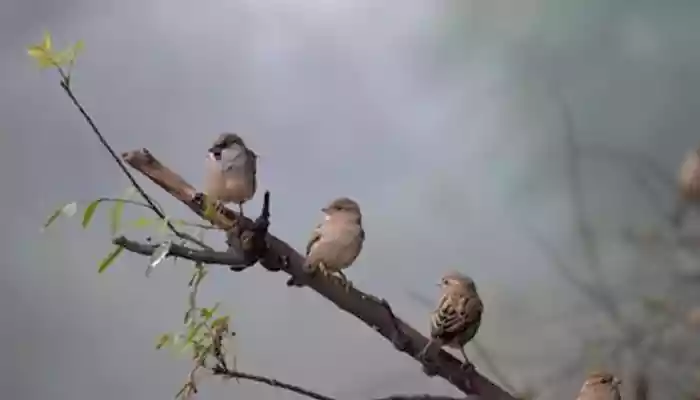The Role of Birds in Ecosystems: Nature's Pest Controllers and Pollinators
The bird kingdom is our genuine ally in our pursuit of a sustainable planet!
- Jayati
- 20 October, 2023
- 2 mins ago

The Role of Birds in Ecosystems: Nature's Pest Controllers and Pollinators
The bird kingdom is our genuine ally in our pursuit of a sustainable planet!
Birds, despite their common presence in our environment, are genuinely exceptional creatures that we frequently fail to fully appreciate. However, the unfortunate truth is that due to urbanisation and habitat destruction, we're witnessing fewer of these feathered friends around us. This decline in bird populations is a troubling sign for our environment and the natural balance of ecosystems. Why do we say this? It's because birds, beyond their soothing songs and vibrant appearances, fulfil critical roles as nature's pest controllers and pollinators. Their contributions to the environment often go unnoticed, but they are genuinely commendable! So, let's embark on a journey today to explore the world of birds and discover just how significant they are in providing essential environmental benefits.
Birds as pest controllers
Let's begin by exploring the vital role birds play as natural pest controllers, which is among their most significant contributions to the environment. Many bird species are avid insect-eaters, and this characteristic holds significant importance in maintaining a balanced ecosystem. Their knack for keeping insect populations in check not only preserves environmental equilibrium but also safeguards our agricultural yields and food supplies from pest damage. What's particularly noteworthy is how these feathered creatures fit seamlessly into the framework of ethical farming and organic agricultural practices, which are gaining increasing traction worldwide. Unlike conventional agricultural methods that heavily rely on chemical substances and toxins for pest control, birds step in as nature's pest predators, offering a more environmentally friendly and sustainable approach.

Now, let's take a closer look at the ground-foraging birds like chickens, quails, and turkeys. These birds are instrumental in agricultural fields, diligently munching on insects and weed seeds! Their presence in alternative farming approaches has become more crucial than ever as we strive for a sustainable world. Speaking of sparrows and finches, they too play an invaluable role in agriculture. These small yet industrious birds help immensely in the farming and harvesting process by feasting on unwanted weed seeds that tend to spread across fields, posing a threat to essential crop cultivation.
Birds such as crows, known for their intelligence and adaptability, perform a vital task in tidying up both urban and natural settings. They achieve this by foraging for food scraps and discarded waste in garbage bins and trash cans. Thanks to their acute senses of smell and sight, these birds can detect food from a distance, and their opportunistic eating habits make them efficient cleaners. Although crows might not always be in the limelight for their environmental contributions, they are indeed noteworthy for their role in curbing and diminishing the accumulation of organic waste in our surroundings.
Birds as Pollinators
The role of birds as pollinators is incredibly significant. Within the avian world, hummingbirds stand out as prominent pollinators because they transfer pollen between flowers while sipping nectar. Birds play an active role in pollinating various plant species, aiding in their reproduction. Additionally, fruit-eating birds contribute to the regeneration of plants by dispersing seeds through their droppings, facilitating the birth of new plants in a truly remarkable way.
These feathered companions are like steadfast allies in our mission to nurture a greener planet. They extend their assistance in numerous ways, working diligently to preserve the delicate ecological equilibrium and minimise harm to our environment through their behaviours and habits. However, the way we lead our daily lives and the ever-encroaching urbanisation are exacting a toll on their existence, endangering these invaluable creatures. Therefore, it is imperative that we shift our attention towards their conservation, striving for a more harmonious coexistence with these feathered friends!






